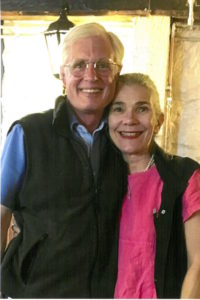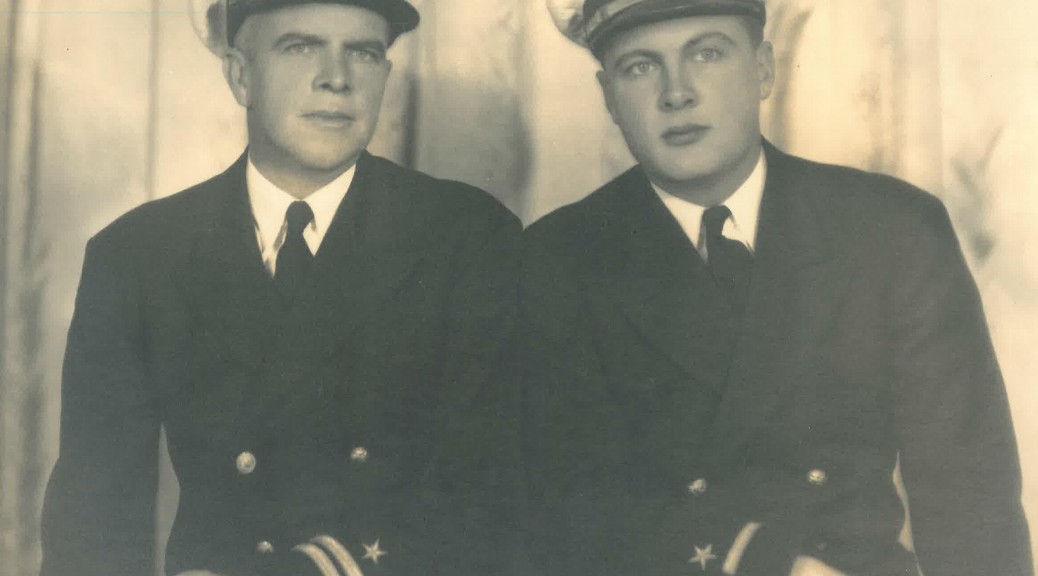While we were gone, Kathy and I did a little traveling. Eventually, we went to Houston. On New Year’s Day, the couple we were visiting took us to a family farm west of Houston. Our friends took their car, and we took ours because we were going on to San Antonio later in the day. I should have expected this, but my friend drives a bit faster than I do. (Texas as a rule think that the term “Speed Limit” means the minimum speed you should drive.) As we got closer and closer to the vast metropolis of El Campo Texas, he was far ahead. We were headed for a farm his mother owns several miles outside of El Campo.
As we left Houston, I noted that we no longer have a map of Texas in my car. In today’s world with GPS’s, we don’t need a map very often. Our friends called us and gave us a long and complicated set of instructions, from the Interstate Highway to State Highway to County Road, and went ahead to open the gate. We didn’t need to pay that much attention to the instructions because we have our cell phones!
As we went further and further into the country-side, Kathy notified me that her GPS did not work, and we could no longer get information by phone. Of course, we thought we remembered what to do, so we went on. Unfortunately, our memories were not perfect. In addition, some friendly neighborhood young person had driven over a sign that marked one of our turns. In the end, we ended up miles out of our way. Eventually, we got back cell phone coverage, called our friends, and got new instructions. Part of these instructions involved them coming to get us!
This little trip is a metaphor for the way many of us live our lives: We don’t take along the most important road map for life we can have. If we have one, we don’t read the Bible. We don’t stop to ask God for directions until we are good and lost. Eventually, God has to mount a rescue mission.
The Visit of the Wise Men
 Today, January 6, is Epiphany, the day we celebrate the coming of the Wise Men from the East to worship the Baby Jesus. The word “Epiphany” means a “revealing”. The Wise Men were the first Gentiles, that is non-Jews, to whom the Messiah was revealed. For anyone who celebrates Epiphany, it is also the end of the Twelve Days of Christmas. Our text is a familiar passage from the Gospel according to Matthew:
Today, January 6, is Epiphany, the day we celebrate the coming of the Wise Men from the East to worship the Baby Jesus. The word “Epiphany” means a “revealing”. The Wise Men were the first Gentiles, that is non-Jews, to whom the Messiah was revealed. For anyone who celebrates Epiphany, it is also the end of the Twelve Days of Christmas. Our text is a familiar passage from the Gospel according to Matthew:
After Jesus was born in Bethlehem in Judea, during the time of King Herod, Magi from the east came to Jerusalem and asked, “Where is the one who has been born king of the Jews? We saw his star when it rose and have come to worship him.” When King Herod heard this he was disturbed, and all Jerusalem with him. When he had called together all the people’s chief priests and teachers of the law, he asked them where the Messiah was to be born. “In Bethlehem in Judea,” they replied, “for this is what the prophet has written:
“‘But you, Bethlehem, in the land of Judah, are by no means least among the rulers of Judah; for out of you will come a ruler who will shepherd my people Israel.’”
Then Herod called the Magi secretly and found out from them the exact time the star had appeared. He sent them to Bethlehem and said, “Go and search carefully for the child. As soon as you find him, report to me, so that I too may go and worship him.” After they had heard the king, they went on their way, and the star they had seen when it rose went ahead of them until it stopped over the place where the child was. When they saw the star, they were overjoyed. On coming to the house, they saw the child with his mother Mary, and they bowed down and worshiped him. Then they opened their treasures and presented him with gifts of gold, frankincense and myrrh. And having been warned in a dream not to go back to Herod, they returned to their country by another route (Matthew 2:1-12).
Let us Pray: God of Light in Whom we can find perfect guidance for our lives: Come by the power of Your Holy Spirit. Show us your will and give us the human will to accomplish your purposes for our lives. In Jesus Name, Amen.
Worship is the First Step in the Life of Faith
When Jesus was born, far off to the east, probably near Babylon, there were Magi (star gazers, astrologists or astronomers, as we would call them), people who studied the stars, believing that the future and meaning of events could be understood in this way. [1] Because of their great learning, they often became influential, sometimes advising Persian kings. Around the years 8-6 B.C., some of these Magi saw a star in the West and deduced that it was an omen that a king had been born in Palestine, the land of the Jews.[2] They decided to travel to far off Palestine and pay homage to the newly-born King of the Jews.
 At this point, we see a difference between Matthew’s day and our day and time. If we had seen such a star and thought it meant there was a new born king of the Jews in Palestine, we would have said to one another, “Let’s go see if we are correct—let’s have an experiment and see if we are right.” The Wise Men, however, did not go to Judea to test a theory; they went to worship and pay homage to a king. The ancients were different, and perhaps we need to recover some of the difference in our own lives.
At this point, we see a difference between Matthew’s day and our day and time. If we had seen such a star and thought it meant there was a new born king of the Jews in Palestine, we would have said to one another, “Let’s go see if we are correct—let’s have an experiment and see if we are right.” The Wise Men, however, did not go to Judea to test a theory; they went to worship and pay homage to a king. The ancients were different, and perhaps we need to recover some of the difference in our own lives.
The first step in the Christian life is worship. It is not the only thing: Bible Study, Prayer, Service, and other holy habits are important. But, worship is usually the first thing we do. Before we do anything else, we must, as our Purpose Statement says, Be Centered on Christ. As time goes by, we will learn that there is a lot more to the life of worship than attending church. In Romans, Paul reminds his readers:
Therefore, I urge you, brothers and sisters, in view of God’s mercy, to offer your bodies as a living sacrifice, holy and pleasing to God—this is your true and proper worship. Do not conform to the pattern of this world, but be transformed by the renewing of your mind. Then you will be able to test and approve what God’s will is—his good, pleasing and perfect will (Romans 12:1-2 Emphasis Added).
Our lives ought to be a kind of Physical, Mental, Moral, Emotional, and Spiritual worship of God. Wise living begins with recognizing God and worshiping God.
Tension with the World is Part of the Life of Faith
Not everyone was as excited as the Wise Men to discover that there was a new-born King of the Jews. King Herod the Great, for example, was a less than thrilled to hear the news, since he was not the father of a new child. Herod was an Idumean or Edomite, not a Jew, although the Roman authorities did not, in all probability, understand or make this distinction. The Jews never accepted his kingship. He was definitely not of the line of David, and any Jew of David’s line had a better claim to the throne of Israel, including Jesus.
Herod owed his kingship to his friendship with Caesar Augustus. He was called the “Great” because he rebuilt the Temple in Jerusalem and made many other improvements in his domain, including building the lovely port of Caesarea and the Fortress Masada, which tourists visit even today. [3] At the time of Jesus’ birth, Herod was near the end of his reign, a time in which he showed increased signs of paranoia and madness. He was not above murder or persecution—even against members of his family.
The Herod’s of this earth are always with us. They are those who understand the system and know how to use it. [4] They make powerful friends, though in reality they have no friends. They are attracted to power, and they are more than willing to do what it takes to acquire it. They are also willing to say and do whatever it takes to keep power. They are not necessarily wise, but they are shrewd—and it is their shrewdness that makes them dangerous. One of the challenges of the Christian life is learning to navigate in a world filled with big and little Herod’s.
One facet of American life is the extent to which we have become a post-Christian society. Many leaders in the media, in academia, in government, and business no longer even pretend to be Christians or support Christian faith and practice. In some cases, they are explicitly anti-Christian. This means that we, like the early Church, must be willing to bedifferent and experience the tension resulting from being outside the mainstream. In particular, we need to be willing to serve those outside our faith in love, waiting for other people to see what a difference Jesus makes. Today, more than ever, we must live our faith, not just proclaim it with words.
Once We See Jesus, We Travel a Different Path
After Herod visited with the Wise Men, he conferred with his advisors. On the basis of the Old Testament prophesy from Micah,they advised that the child was probably born in Bethlehem in Judea, a few miles down the road (See Micah 5:2 and Matthew 2:5-7). Herod then sent the Wise Men to find the boy with the request that, if they found him, they should come and tell him where the boy was so he could come and worship him (Matthew 2:8). Of course, Herod has no such intention; he intended to kill the child. [5]
 The Wise Men went on their way until they found the boy. They followed the star until it rested over the place where Jesus was (Matthew 2;9). The text does not tell us exactly where the boy was when they found him, though the context indicates it might have been Bethlehem. [6] We do know that, when they found him, they worshiped him and gave him gifts: Gold symbolizing Royalty, Frankincense, symbolizing the Holy Spirit and Myrrh, symbolizing his Death. [7] Although Herod had asked the Magi to report the boy’s whereabouts to him, the Wise Men were warned in a dream not to do so. They departed and went home by a different path. We hear no more about them in the Bible.
The Wise Men went on their way until they found the boy. They followed the star until it rested over the place where Jesus was (Matthew 2;9). The text does not tell us exactly where the boy was when they found him, though the context indicates it might have been Bethlehem. [6] We do know that, when they found him, they worshiped him and gave him gifts: Gold symbolizing Royalty, Frankincense, symbolizing the Holy Spirit and Myrrh, symbolizing his Death. [7] Although Herod had asked the Magi to report the boy’s whereabouts to him, the Wise Men were warned in a dream not to do so. They departed and went home by a different path. We hear no more about them in the Bible.
When and if we truly experience the love of God and presence of Jesus in our lives, we can never be the same again. A person can read or hear the story of the birth and remain exactly the same as before. Each year, people do. But, a person cannot experience the birth and see the Son of God and be unchanged. A person cannot truly worship the Baby Jesus and remain unchanged. It just is not possible.Believers should always leave Christmas by “another way” (Matthew 2:12). As we leave this Christmas, and move into a new year and a new time in the life of Bay Presbyterian Church, we might ask ourselves this question, “Now that I have been to Bethlehem and seen the child, what will I do differently in 2019?”
One of the names for Jesus is the “Bright and Morning Star” (Rev. 22:16). Jesus shines throughout the universe as the reflection of the glory of God, the true light that shines into every dark place in our lives. He is the light that will lead us out of those dark places not the light of his will and his joy. When we invite the Holy Spirit into our lives, and are gradually changed into the image of Jesus, we too begin to shine. In this world, we do need to proclaim Christ, but we also need to reflect his glory in our lives. [8] As St. Francis said, “Share the gospel constantly, and where necessary use words.”
Conclusion
The Wise Men, like people today, lived in a time of transition. The Wise Men did not know it, but they left their home in the East just as the world was about to change forever. A new era was beginning. The ancient, pagan world was about to die, and what we know as the Judea-Christian world was being born. We also live in a time of transition. The modern world, with its materialistic presuppositions and radical individualism, is dying. What is emerging, for better or for worse, we call the post-Modern world. In our church, and in all the churches of America and the West, a new era is dawning.
When a new day comes, we have two choices: We can fight it (and many do) or we can with faith, hope, and love walk into that future. The better course is, as Henry Blackaby put it in his book Experiencing God,“Find out what God is doing and join him in it.” [9] A new year is here and a new day is coming to Bay Presbyterian Church. The best things we can do is see it, and join God in what God is going to do next.
Amen
Copyright 2018, G, Christopher Scruggs, All Rights Reserved
[1] The Magi were probably wise men of Median origin found in positions of honor in Babylonian and Persian royal courts. These wise men were interpreters of the stars and dreams. See, P.A. Michlem, The Gospel According to Matthew” in Westminster Commentaries(London: Methuen & Co. Ltd, 1917): 9.
[2] It is impossible to identify this “Star” precisely. Halley’s Comet is reported to have appeared around the year 11- 12 B.C. See, Ulrich Luz, “Matthew 1-7” in Hermenia: A Critical and Historical Commentary on the Bible(Minneapolis, MN: Fortress press, 2007): 105 and Douglas R. A. Hare, “Matthew” in Interpretation: A Biblical Commentary for Preaching and Teaching(Louisville, KY: John Knox Press, 1993): 14. The Biblical interpretation in this blog is based on these commentaries and the one mentioned in footnote 1.
[3] See, D. J. Harrington, S. J. “Matthew” in Sacra Pagina (Collegeville, MN: Michael Glazier Books, 1991):41,
[4] See, Stanley Hauerwas, “Matthew” in the Brazos Theological Commentary on the Bible(Grand Rapids, MI: Brazos Press, 2006): 36. Hauerwas says that Herod is the very type of many truth-denying, love-denying leaders to come.
[5] This is made plain by the so-called “Murder of the Innocents” described in Matthew 2:16-18.
[6] In the next verses we learn that Herod had all male children under the age of two in Bethlehem killed, but that does not mean that this is the place where the Magi found him. It may have been there, in Nazareth, or even in Egypt. There are legends that support several locations.
[7] See, Hare prev. cit. at 13-14.
[8] There is a lot contained in this statement. One of the primary principles of post-modernism is that all statements are bids for power. Furthermore, all such statements only reflect the grasping for power of the speaker. In such a world, it is nearly for people to accept Christ on the basis of words alone. They have to see the difference that faith makes in the lives of believers. If we do not “walk the walk” in addition to “talking the talk,” we will make to progress in sharing our faith with others. As Paul says in Philippians, we need to shine as lights into a dark world (Phil. 2:15),
[9] Henry Blackaby, Experiencing God (Nashville, TN: Broadman and Holman, 2004).













































